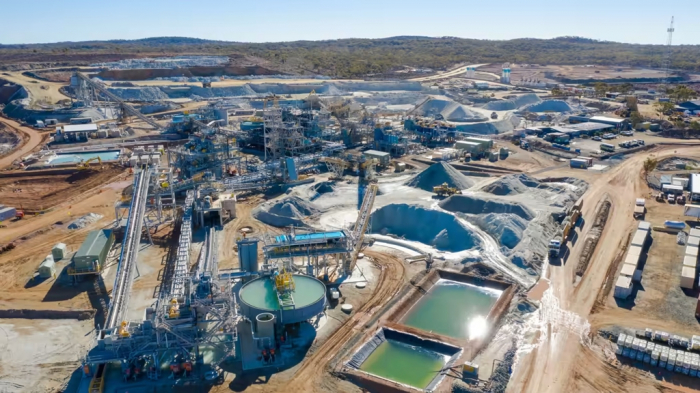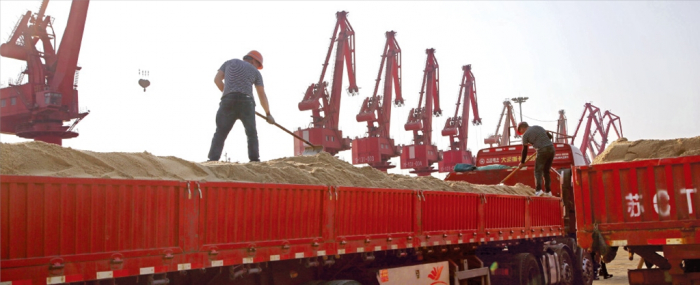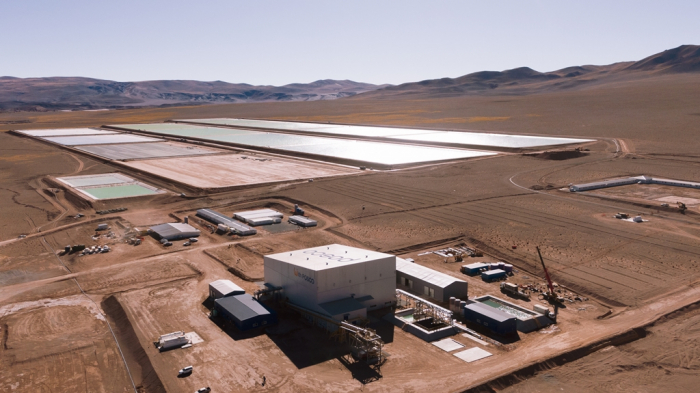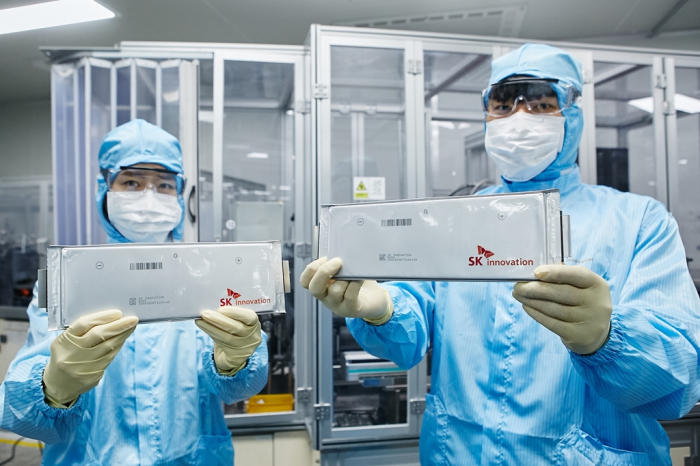Batteries
China’s tighter grip on minerals boosts costs for Korean battery makers
Korean firms will see diminished clout unless they diversify procurement away from China, analysts warn
By Apr 12, 2022 (Gmt+09:00)
4
Min read
Most Read
LG Chem to sell water filter business to Glenwood PE for $692 million


Kyobo Life poised to buy Japan’s SBI Group-owned savings bank


KT&G eyes overseas M&A after rejecting activist fund's offer


StockX in merger talks with Naver’s online reseller Kream


Mirae Asset to be named Korea Post’s core real estate fund operator



South Korea’s major battery makers and materials suppliers are suffering from soaring battery raw materials prices as China is tightening its grip on the global minerals supply chain.
Korea’s three battery players – LG Energy Solution Ltd., SK On Co. and Samsung SDI Co. – are also under pressure as the higher dollar-won exchange rate inflates their materials procurement costs.
The three companies and two major battery materials makers – EcoPro BM Co. and POSCO Chemical Co. – spent a combined total of some 20 trillion won ($16.2 billion) in 2021 to buy lithium, nickel and other minerals, up 34.3% from the previous year, according to an analysis of their business reports by The Korea Economic Daily.
Their higher costs were partly due to increased production of battery components such as cathodes and anodes to meet the rising demand for electric vehicles, but soaring raw materials prices were the main factor, the analysis showed.
Lithium prices were 298.5 yuan a kilogram in January 2021, up sharply from 38.5 yuan a year earlier. As of last Friday, such prices stood at 457.5 yuan, a twelvefold increase over the past two years.
The price of lithium, a key material used for the positive end of a lithium-ion battery, known as the cathode, is set in the Chinese yuan -- not the US dollar -- in the global market as Chinese makers are dominant players.

PRICES AT 'INSANE LEVELS'
As the cost of the metal, key to battery technology, is skyrocketing, Elon Musk, chief of the world’s top EV maker Tesla Inc., recently said the company may start mining lithium.
“Price of lithium has gone to insane levels! Tesla might actually have to get into the mining & refining directly at scale, unless costs improve,” he said in his recent Twitter post.
Analysts said the recent price hike was caused by the supply chain disruptions in the wake of the Russian invasion of Ukraine, but more fundamentally, China’s growing clout in the global battery materials market is exacerbating the situation.
A recent tide of resource nationalism also saw an increasing number of countries from China to Indonesia and Mexico strengthening control over natural resources in their territories.
While China is not the primary producer of battery materials such as cobalt, nickel and lithium, it is the primary processor of them.
China currently controls the processing of nearly 60% of the world’s lithium, 35% of nickel and 65% of cobalt, according to industry data.
The Asian superpower also owns eight of the 14 largest cobalt mines in Congo, the world’s principal source of cobalt, and is buying up mining capacity in South America. About 60% of lithium reserves are in Latin American countries, including Bolivia, Chile and Argentina.

FORCED TO TIE UP
Industry watchers said soaring prices of metals for rechargeable batteries are particularly worrisome for Korea, home to LG Energy, the world’s second-largest battery maker, and its two local battery rivals Samsung and SK, forcing them to strengthen their partnership with Chinese companies.
“Chinese lithium processing companies are turning their supply deals with Korean buyers from long-term contracts to short-term ones to better reflect fast-rising mineral prices. But we have no other choice but to accept their requests,” said a Korean battery material importer.
Korea’s battery-related companies are seeking to form joint ventures with Chinese battery materials producers and build facilities in resource-rich countries such as Argentina, Australia and Indonesia.
Indonesia has ample mineral resources such as nickel and cobalt. The Southeast Asian country is the world’s top nickel producer with the largest reserves.
Korean steel giant POSCO, which is widening its business scope to battery materials, in March began construction of a lithium commercialization plant in Argentina.

Separately, POSCO Chemical is operating manufacturing facilities for cathodes and precursors, both key components for EV batteries, in China.
LG Chem Ltd., Korea’s top chemical company, has said it is partnering with China’s Zhejiang Huayou Cobalt Co., the world’s largest producer of refined cobalt, to launch a battery material joint venture to produce cathodes in Korea.
LG is also considering an equity investment in overseas mining projects to secure raw materials.
The Korean battery trio and two material suppliers, EcoPro BM and POSCO Chemical, spent a combined 1.95 trillion won in battery-related research and development last year, up 72% from 2020.
“Korean companies should lower their reliance on China. They need to look further into other countries such as Taiwan, Malaysia and Indonesia to diversify their source of procurement,” said Kang Nae-young, a senior researcher at the Korea International Trade Association.
Write to Jeong-Min Nam, Ik-Hwan Kim and Kyung-Min Kang at peux@hankyung.com
In-Soo Nam edited this article.
More to Read
-
 BatteriesKorea’s battery trio cornered by Chinese rivals’ overseas advance
BatteriesKorea’s battery trio cornered by Chinese rivals’ overseas advanceApr 04, 2022 (Gmt+09:00)
4 Min read -
 BatteriesPOSCO to invest $4 bn in Argentina battery materials project
BatteriesPOSCO to invest $4 bn in Argentina battery materials projectMar 22, 2022 (Gmt+09:00)
2 Min read -
 War in UkraineKorea jittery over oil, gas, commodity weaponization
War in UkraineKorea jittery over oil, gas, commodity weaponizationMar 13, 2022 (Gmt+09:00)
4 Min read -
 Battery materialsLG Chem, China’s Huayou Cobalt to build battery metal JV in Korea
Battery materialsLG Chem, China’s Huayou Cobalt to build battery metal JV in KoreaJan 05, 2022 (Gmt+09:00)
3 Min read -
 BatteriesChina’s tighter grip on supply chain hurts Korean battery makers
BatteriesChina’s tighter grip on supply chain hurts Korean battery makersDec 27, 2021 (Gmt+09:00)
4 Min read
Comment 0
LOG IN


